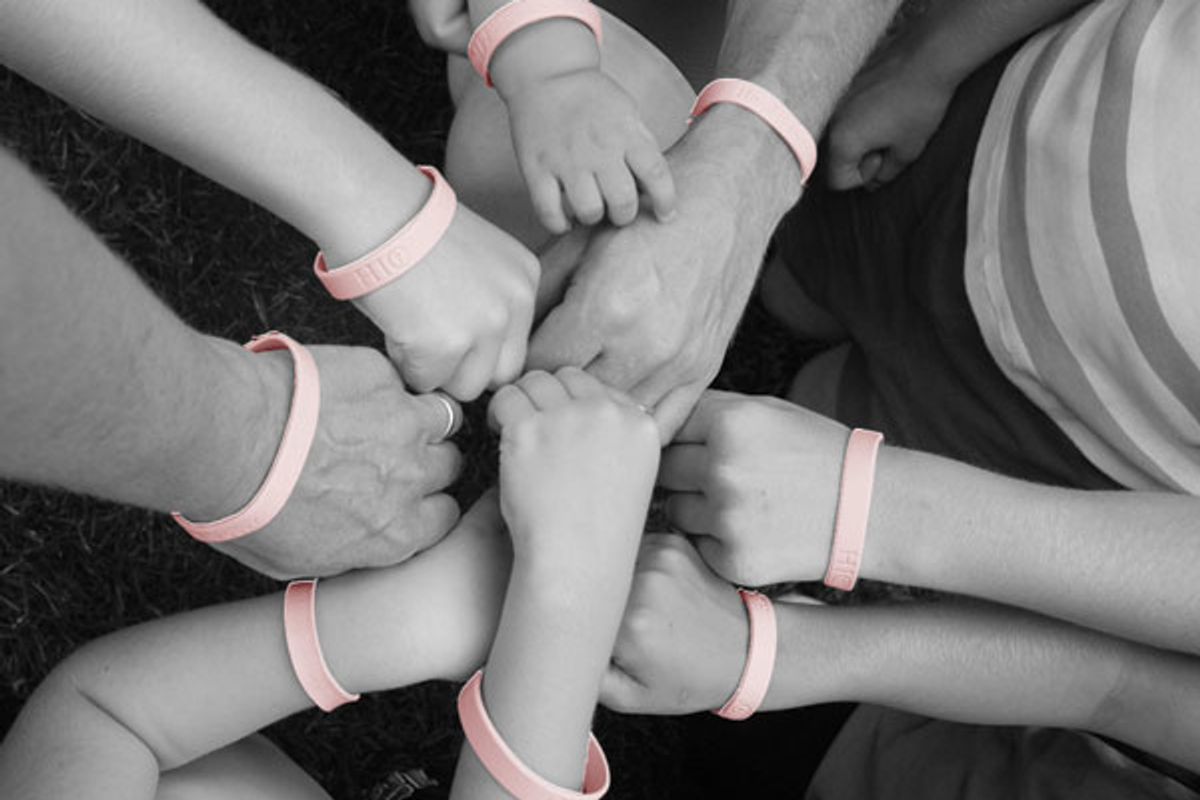A breast cancer diagnosis doesn't affect just one life; it can flip the lives of family and friends upside down.
That's why it's important to guide not only the patient but also loved ones through this difficult time.
The patient's friends and family play a crucial role in recovery and beyond. It's up to them to create a circle of care, which will provide a sense of optimism and comfort for the patient, and it's up to health care providers to guide them through this process.
Use these tips from Constance Roche, NP, as a reference.
Creating a Breast Cancer Circle of Care: Steps to Share With Patient's Friends and Family
Step 1: Designate a Care Leader
Have someone take the lead in organizing support. A friend or family member who is naturally organized can be the go-to person to delegate helpful tasks. Likewise, one person can offer to help communicate status updates to friends and family.
Step 2: Touch Base Regularly
Plan to stay in touch throughout recovery and beyond. Daily calls, weekly visits or regular emails will give the patient something to look forward to.
Step 3: Whip Up Some Recipes for Love
Food is fuel, and the patient will need the proper nutrients during this process. To help coordinate meal prep, you can use a service like Meal Train LLC, a free solution that simplifies the organization of giving and receiving meals. The site allows the giving party to take into account the recipient's preferred meal times, food preferences and available days. This helps ensure that the recipient gets the meals they enjoy on the days that are most helpful.
Step 4: Treat This Diagnosis Separate From Others
Friends and family should refrain from telling stories about others with what they assume is a similar diagnosis. Every cancer diagnosis is different, and there are specifics that direct course of care. So often, newly diagnosed patients get overwhelmed with information and frightened by others' stories. This diagnosis is unique for the patient in that it's happening to them.
Step 5: Don't Turn to Dr. Google
If you're looking for more information on breast cancer and recovery, ask the oncology team for trusted resources. Some websites give inaccurate information and can steer you down a confusing road. HealthyWomen's breast cancer center is a great place to start.
This article was created with the support of Meal Train LLC. CORP0438
- Supporting A Loved One With Cancer - HealthyWomen ›
- Do You Know Someone Who Has Cancer? Here’s How You Can Help. - HealthyWomen ›
- Asking for Support Helps Me Heal - HealthyWomen ›
- Asking for Support Helps Me Heal - HealthyWomen ›
- Caring for Caregivers During Cancer Treatment Is Important, Too - HealthyWomen ›
- Coordinate a Meal Train for Someone Battling Breast Cancer - HealthyWomen ›
- How to Help a Friend or Family Member Who Is Battling Breast Cancer - HealthyWomen ›
- Cooking for Someone Battling Breast Cancer: Quinoa Pasta Salad - HealthyWomen ›
- Supporting a Friend Who Has Breast Cancer - HealthyWomen ›






